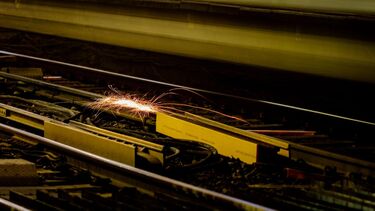Onboard Energy Storage Systems for Discontinuous Electrification in Railways
In order to de-carbonise non electrified railway routes, the use of onboard energy storage systems is a novel approach to reduce and remove the reliance on diesel powered traction, however research is required to understand the impacts and use cases of discontinuous systems.

The use of onboard energy storage systems (OESS) is an emerging technology within the rail industry with several test trains utilising batteries on the network and some new rolling stock in passenger service. The use of OESS allows the trains to run using electrical energy on sections of track that are not electrified, reducing emissions by not using diesel traction. 91Ö±˛Ą is researching novel approaches to this technology to decarbonise the railways and the technological and operational challenges associated with implementing these new technologies.
The research of these novel applications is being undertaken to improve passenger safety by removing conductor rail within stations and investigate resilience solutions to support the continuing operation of rail systems during periods of time when the power supply systems have failed.
Staff involved:
James Scott, PhD Researcher, School of Mechanical, Aerospace and Civil Engineering
Prof David Fletcher, Professor of Railway Engineering, School of Mechanical, Aerospace and Civil Engineering
Prof Dan Gladwin, Professor of Electrical and Control Systems Engineering, School of Electrical and Electronic Engineering
